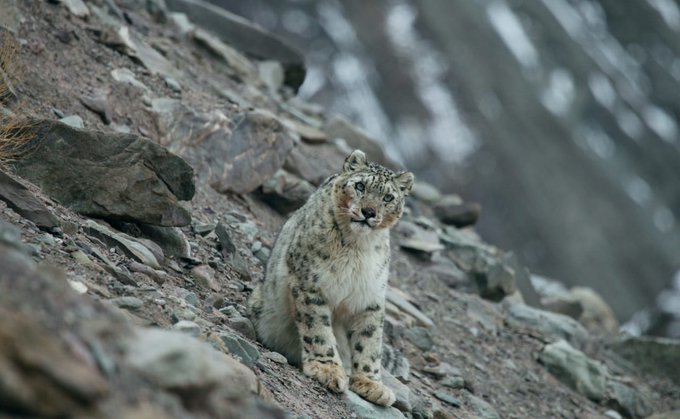Government committed to landscape restoration for snow leopard habitat conservation
New Delhi: Minister of State for EnvironmentForest and Climate Change Shri Babul Supriyo has said that the Government of India has been conserving snow leopard and its habitat through the Project Snow Leopard (PSL). The PSL was launched in 2009. Speaking at the International Snow Leopard Day 2020through a virtual meeting, Shri Supriyo said, Government is committed to landscape restoration for snow leopard habitat conservation, and implementing participatory landscape-based management plans involving local stakeholders, the. The Minister said, India is also party to the Global Snow Leopard and Ecosystem Protection (GSLEP) Programme since 2013.
During the virtual meet, Shri Supriyo stated that India has identified three large landscapes, namely, Hemis-Spiti across Ladakh and Himachal Pradesh; Nanda Devi – Gangotri in Uttarakhand; and Khangchendzonga – Tawang across Sikkim and Arunachal Pradesh. Shri Supriyo emphasised that states together with Government of India should resolve to bring up the population of snow leopards in India in the next five years.
In India, their geographical range encompasses a large part of the western Himalayas including the states and UTs of Jammu and Kashmir, Himachal Pradesh, Uttarakhand, Sikkim and Arunachal Pradesh. Protecting the snow leopard and its habitat ensures protection of the major Himalayan rivers that support the teeming millions downstream. It also ensures that the ecological balance is maintained in these fragile ecosystems.This multi-lateral programme comprises of 12 snow leopard range countries and they have developed national priorities and identified large landscapes to support viable populations of snow leopards. During the virtual meet community volunteer programme “HimalSanrakshak” was launched by Shri Supriyofollowed by the release of origami notebook based on the theme of combatting illegal trade in wildlife.
The Government of India has identified the snow leopard as a flagship species for the high-altitude Himalayas.
The Centre hosted the 4th Steering Committee of the GSLEP program in October 2019 at New Delhi. This meeting resulted in the “New Delhi Statement” of strengthening the resolve of the snow leopard range countries towards conservation of the mountain ecosystems of Central and South Asia.
First National Protocol was also launched last year on Snow Leopard Population Assessment which has been very useful for monitoring populations.In line with other projects, this initiative exclusively focuses on developing landscape-based management plans, habitat restoration plans, livelihoods improvement, mitigation of wildlife crime and illegal trade in wildlife, human-wildlife conflict mitigation strategies, improving awareness and communications strategies.
The project also encourages the States and UTs to adopt innovative strategies to resolve issues related to multi-stakeholder landscape management, human-wildlife conflicts, wildlife crime and trade in wildlife parts and products, capacity building, climate-smart energy solutions etc.

